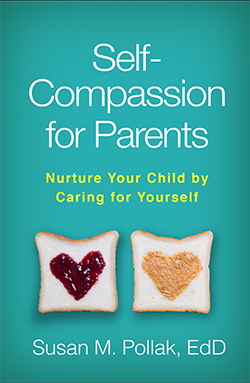Study Guide for Self-Compassion for Parents

This guide is designed for book or parenting groups reading SC4P together. These practices are intended to help build community and resilience during the decades long marathon we call parenting. So many parents I know complain about feeling isolated. Rarely do we have extended family to support us. Around other parents, at school or soccer games, we often feel pressure to look like we have it all together. One of the aims of this guide is to help you build a caring group of parents to support each other during the ups and downs of the journey. This is a chapter by chapter guide, and the practices are designed to elicit sharing and honest and open conversation. See if you can allow yourself to be vulnerable.
Chapter 1
What Do I Need? (pg.10)
This is a good place to start. Take five or ten minutes to do this exercise together, and then break into dyads to talk about what came up for you. Let each person have three minutes to talk.
What Would Your Best Friend Say? (pg. 26).
Try this as homework after reading this chapter. When you have a break, take five minutes to write what a friend or mentor or relative might say to you about a challenge you are facing.
Chapter 2
When Have You Needed a Life Raft? (pg. 35).
Share times when you've lost it. Humor helps bring us together. Then all listen to Self-Compassion Life Saver for Parents, Audio Track 2. Discuss what phrases or words speak to you.
For homework, try What Works for You? Experiment with these new skills and see what helps.
Chapter 3
What is Your Fantasy? (pg. 72). We all have hopes and dreams for our children. But it is important to bring awareness to your unlived life. Try this practice in the group and discuss what arises for you.
For homework, experiment with Soothing Touch (pg. 82), a great practice for meltdowns, theirs and ours. See what touch you find comforting when you are upset. Share this with your child, maybe even bringing in a stuffed animal to join you.
Chapter 4
When we are feeling alone or isolated, it helps to remember a time when someone was there for us. Listen to Having Your Back, Audio Track 5, with your group. Share your experience.
One of the most powerful meditations we have is the practice of Loving-Kindness, (LKM). For homework, try practicing in daily life, such as on the playground or at a potluck (pg. 112ff).
Chapter 5
We want to control all the events in our lives, but we can't. And we want to control everything for our children, thus the term "snowplow parents." Instead, learn to work skillfully with the Uncertainties of Parenting, (pg. 119). You may want to share with the group what is uncertain (and upsetting) for you now.
For homework, to help manage the difficult emotions that arise, try practicing the Rain / Hurricane of Self Compassion (pg. 121-122).
Chapter 6
When there is tension with your partner, think of what couple therapists tell clients, "all couples are incompatible." Don’t expect that you are your partner will agree on all aspects of child rearing. In fact, you may disagree on most things. Try Navigating the Parenting Abyss (pg. 144-145).
See if you can create your own Mindfulness and Compassion Cocktail to help get you through the day (pg. 157). Feel free to add your favorite practices.
Chapter 7
Sometimes parenting gets tough. And this is where it helps not to be alone. As a group, practice What Obstacles Are You Facing? (pg.170) and share what you are dealing with in your life. Almost everyone has something that is challenging.
Having a larger perspective helps enormously. For homework, practice Sky Gazing (pg. 176), which is a practice you can do as a family or on your own.
Chapter 8
During transitions or difficult times, my go-to practice is the Tree of Compassionate Beings (pg. 204). Try doing this practice as a group—it will help increase your sense of connection with each other.
We don't always get the respect and appreciation we need (and deserve). Listen to Appreciating Yourself as a Parent, Audio Track 10, (pg. 218). And as you finish reading Self-Compassion for Parents, spend some time saying what you appreciate about each other.

